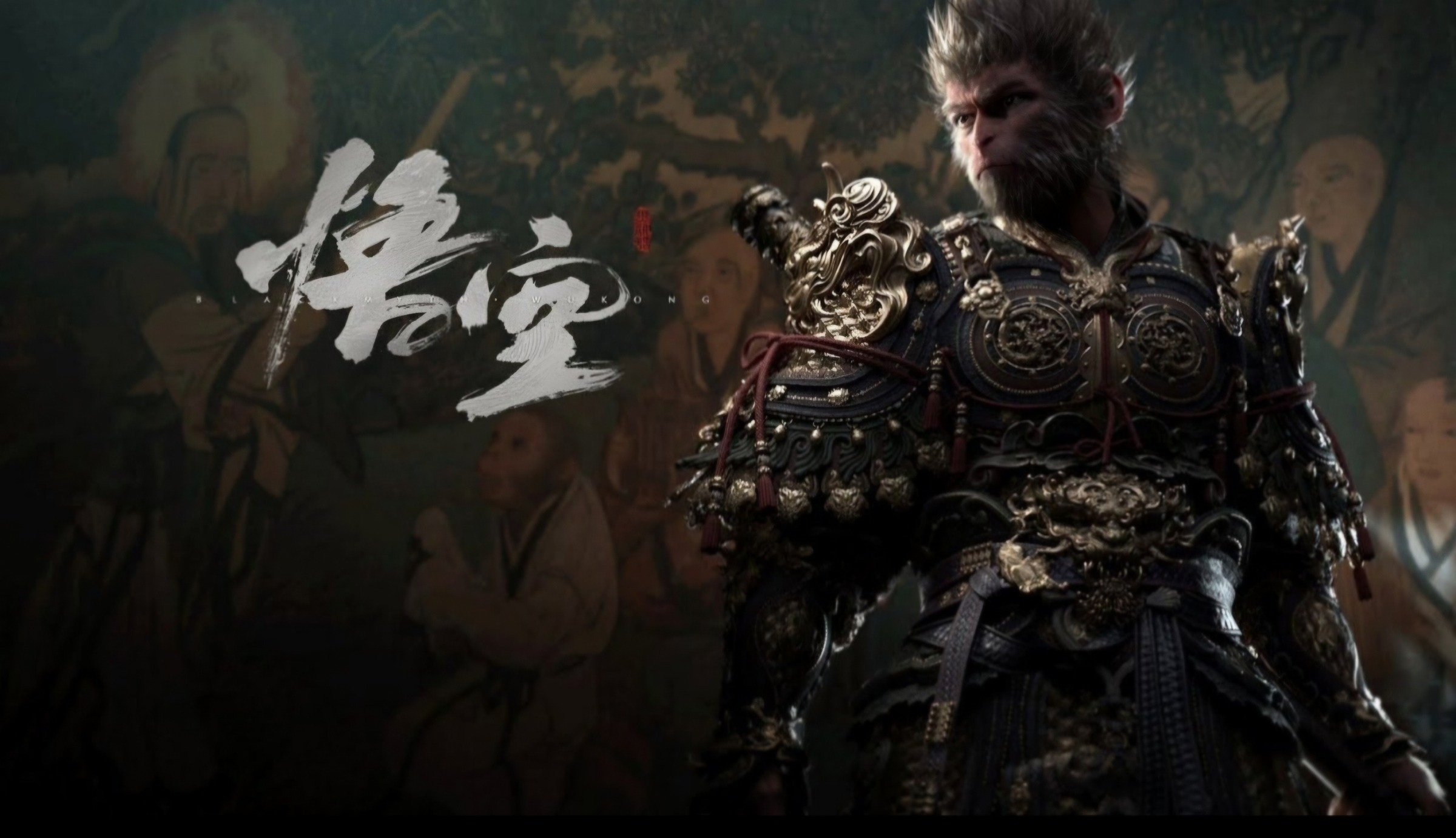《黑神话:悟空》,上线了,一时间火遍了国内外全网。
很多人出相关的内容,从文字,图文,到短视频,甚至小破站都有UP主发攻略,长视频,可谓是好不热闹。
凯撒最近在重新捡起那个鸡肋般的英文,无论是口语,还是写作。因此,借这个话题为素材,写上一篇,同样,放在这个题为【阿长都能学好的英文】系列。
(声明:【阿长都能学好的英文】系列始发于小报童,想了解其他内容,或者想跟着凯撒选的内容来练习英文的,欢迎移步。本人公众号,只会同步发布几篇凯撒认为有趣的,供各位消遣)

图片来自于《黑神话:悟空》游戏官网
On August 20, 2024, the gaming world witnessed a seismic event: the release of Black Myth: Wukong, China’s first true AAA game. Within an hour of its launch, it topped Steam’s most-played games list, amassing over a million concurrent players. The game’s impact extended beyond the gaming sphere, influencing stock markets and even prompting some companies to declare a “gaming holiday.”
This phenomenal success raises intriguing questions about the state of the gaming industry, particularly in China, and the broader implications for content creation and distribution in the digital age.
The Aggregation Theory at Play
Black Myth: Wukong’s success is a textbook example of Aggregation Theory in action. The game has effectively aggregated user attention on a massive scale, leveraging the power of digital distribution platforms like Steam to reach a global audience instantly. This direct-to-consumer approach has allowed Game Science, the developer, to bypass traditional gatekeepers and create a direct relationship with its users.
The game’s success also highlights the increasing importance of user experience in the gaming industry. By focusing on creating a high-quality, immersive experience, Game Science has differentiated itself in a market often criticized for prioritizing monetization over gameplay.
Interestingly, Black Myth: Wukong’s triumph comes at a time when venture capital investment in the gaming industry has been declining. Since 2018, the number of investments in the sector has dropped significantly, with only 16 deals recorded so far in 2024.
This trend seems counterintuitive given the industry’s growing revenues and the occasional breakout success like Black Myth: Wukong. However, it reflects a broader shift in the gaming industry’s structure. The market has become increasingly concentrated, with a few major players dominating the top revenue spots. This consolidation has made it harder for new entrants to break through, reducing the attractiveness of the sector for venture capital.
The Stratechery Perspective
What we’re witnessing isn’t just a trend; it’s a schism. The gaming world is cleaving into two distinct realities:
1/ The Entrenched Titans: These are your Tencents, your Epics, your EAs. They’re sitting pretty atop mountains of lucrative IP and monetization engines more complex than a Rube Goldberg machine;
2/ The Artistic Insurgents: Enter Black Myth: Wukong. These are the games that might not make it rain cash like a broken ATM, but they capture hearts, minds, and headlines;
This isn’t just a bifurcation;
It’s a revolution in slow motion.
For the titans, the writing is on the wall: innovate or evaporate. They need to keep those cash registers singing while somehow fending off the Black Myth: Wukongs of the world. It’s like trying to steer a cruise ship through a minefield.
For the plucky upstarts, it’s a different ballgame. Their currency isn’t just money; it’s attention. And in the attention economy, a game like Black Myth: Wukong is the equivalent of striking oil.
The Future: Experience is the King
If, however, Black Myth: Wukong has taught us anything, it’s that in the cutthroat colosseum of modern gaming, user experience reigns supreme. It’s not enough to have flashy graphics or a recognizable IP. You need to create worlds that players don’t just visit, but live in.
This isn’t just a lesson for gaming; it’s a blueprint for the entire digital economy. In a world drowning in content, the ability to craft truly engaging, immersive experiences isn’t just an asset - it’s the whole damn game.
As we stand on the precipice of this new era, one thing is clear: the companies that can bottle the lightning that is Black Myth: Wukong’s success - that perfect alchemy of innovation, quality, and pure, unadulterated fun - won’t just survive. They’ll write the next chapter of the digital age.
The game has changed. Who will rise to play it?
最后,聊两句本人对这款游戏以及整个游戏行业的一点点想法:
凯撒之前没有特别关注游戏这个行业,只是之前是跨境支付从业者,加上现今从事品牌流量相关,多多少少有接触到一些;另外,凯撒也不是一个游戏深度玩家,因此,本人的观点仅仅是从一个商业生态的角度来看,到底这一次,带来的影响是什么。
就从现有的材料来看,凯撒更愿意把《黑神话:悟空》这款游戏视为一件艺术品,正如《战神奎托斯》系列一样,它的作用是开创性的。但是,站在一个投资的角度,若游戏行业的投资还是那么如火如荼,凯撒担心的是,这类仿黑神话的作品会有很多,比如,《封神演义》有哪吒,《梦溪笔谈》有钟馗,在现在这个AI推动的新的工业化背景下,变成了流水线产品,这个时候,再回头看,《黑神话:悟空》还算是艺术品?
凯撒期待《黑神话:悟空》像《战神奎托斯》一样,出个1234来,一部一部迭代,一点一点去打磨这个游戏,从人物塑造,场景考究,故事严谨性,再到游戏操作,玩家体验等。
游戏从来和画画一样,是艺术品,需要有属于它的马良,拿起那只神笔,不断打磨。
以上。


🔥【《黑神话:悟空》引爆全球游戏圈!】🔥
2024年8月20日,中国首款AAA级游戏《黑神话:悟空》震撼上线,瞬间登顶Steam最热门游戏榜,百万玩家同时在线!🎮 这款游戏不仅征服了玩家,还影响了股市,甚至让一些公司宣布“游戏假期”!📈
🌟 为什么它如此成功?
《黑神话:悟空》不仅是游戏,更是一场数字时代的革命!它通过聚合用户注意力,直接触达全球玩家,打破了传统游戏发行的壁垒。💡 游戏体验至上,沉浸式世界让玩家流连忘返,成为数字经济的典范!
🎨 游戏即艺术
凯撒认为,《黑神话:悟空》不仅是游戏,更是一件艺术品。它像《战神奎托斯》一样,开创了新的游戏时代。期待它像经典系列一样,不断迭代,打磨出更完美的作品!✨
📢 你准备好进入这个新纪元了吗?
《黑神话:悟空》的成功告诉我们:在内容泛滥的时代,只有真正沉浸的体验才能脱颖而出。谁将成为下一个数字时代的赢家?🚀
#黑神话悟空 #游戏革命 #数字时代 #沉浸体验 #游戏艺术